Dear climate warrior and morally superior eco-activist Matt Kean,
You will find a lot of single-use plastic featured in the photo above. It was taken at a Coles store in your electorate last weekend, long after you proposed and then introduced a ‘climate-saving’ ban on single-use plastics. Similar scenes can be found at the nearby Woolworths.
Sorry, let’s clarify that.
The New South Wales government introduced a single-use plastic ban on June 1 as part of the Plastic Reduction and Circular Economy Act 2021 No 31 but only for market stalls, restaurants, cafes, bars, hotels, take-away food, charities, community groups, party supply stores, wholesalers, manufacturers, suppliers, online stores, and supermarkets – wait a second…
For some reason, there has been a little exemption written in for ‘thin bags’ used in fresh produce which are commonly found in supermarkets. (Supermarkets which were also excluded from ruinous Covid regulations over the last two years.) The exemption means that while primary producers and small businesses have been handed an expensive packaging nightmare, supermarket chains remain free to wrap and re-wrap their produce in as much plastic as they like (comparatively).
It’s a bit like closing Australia’s handful of coal-fired power plants while ignoring hundreds puffing away in China.
The point is not whether you believe Matt Green – sorry Kean – is doing the right thing with this plastic crusade, it’s the importance of these rules being applied fairly across New South Wales so that they do not damage, specifically or unjustly, small businesses. If a market stall can’t hand their customer a plastic bag, neither should a supermarket. That is not currently the case.
‘Single-use plastic is used by many of us for just a few convenient minutes, but it remains in our environment for many years, eventually breaking into microplastics. Single-use plastic items and packaging make up for 60 per cent of all litter in NSW,’ said James Griffin, NSW Minister of the Environment (who has taken over from Kean).
According to Griffin, they simply have to go.
One wonders how much of this ‘plastic problem’ originates from supermarkets, given they are the primary source of food and produce for Australians… According to an Environment Protection Authority report, 75 per cent comes from supermarkets while only 25 per cent from small outlets.
Woolworths says that it will stop selling its 15c plastic bags soon – which is likely to cause the same outrage as last time when customers started nicking plastic baskets in retaliation. That ‘bag rage’ hasn’t gone anywhere.
Astonishingly, the current New South Wales ban extends to biodegradable plastics, bio-plastics, and compostable plastics – including those that carry an Australian certification. What was the point of the enormous expense people put into that rort? Do we get any kind of refund for wasting our time and money transitioning to a product the government now says is ‘just as bad’?
Imagine being a family-run business trying to sell off fresh produce with the NSW government’s Big Brother environmental dictatorship patrolling market stores with fines of up to $11,000 (or $250,000 for distributors) while hundreds of customers walk out of the supermarket opposite dripping in perfectly legal plastic.
From November 1, the ban will cause real problems for markets and cafes with the banning of plates, bowls, cutlery, and cups. Of course, huge international food companies are allowed to provide plastic cutlery and straws if it is integrated into the packaging. You’ll still be able to buy your plastic juice box with a plastic straw in a plastic sleeve. The inequality and unfairness written into the system is there because the New South Wales government cannot work out how to make these huge companies adapt to meet their environmental demands.
If Kean and his eco-warrior team aren’t prepared to fight the environment battles with the ‘big boys’ in plastic waste, what’s the point?
When part one of this new law banning plastic came into effect, it took many retailers by surprise, with companies complaining that the government did not do an adequate job of preparing the industry. This led to ridiculous scenes where small businesses were forced to throw out thousands of wads of unused plastic bags, which defeats the purpose.
As furious as retailers are today, it is only the beginning of Kean’s environmental Utopia. The November 1 rules will severely impact cafes. The idea that ‘customers can just bring their own’ is a thought bubble waiting to burst all over the government. For the cafe industry, nearly all of their customers are impulse buyers. Anything that restricts this business model is likely to have a catastrophic impact on sales right when the government pretends it wants to rebuild the post-Covid economy.
It is not the time to be fussing around with delicate margins, fragile supply chains, and logistical balancing acts.
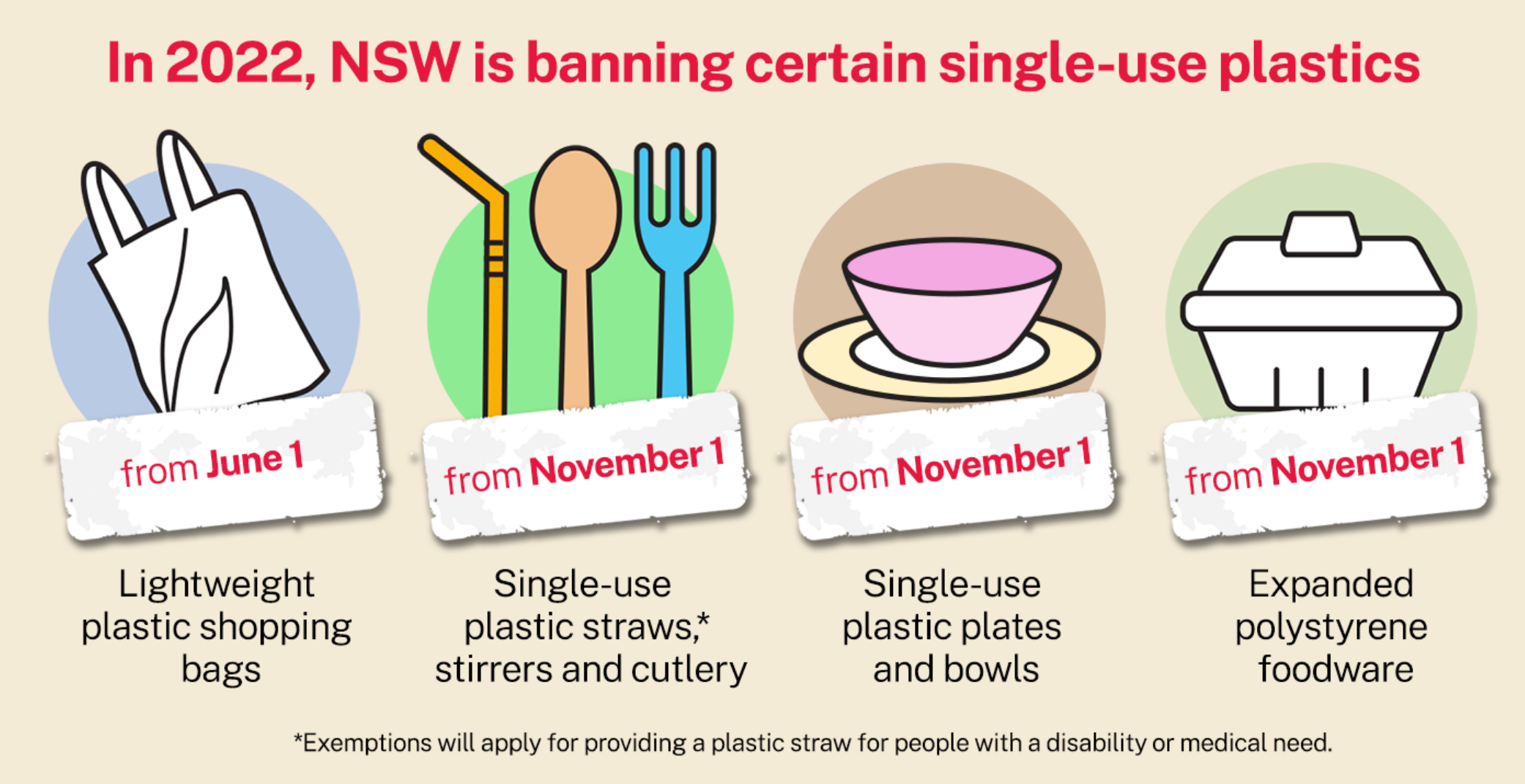
NSW government plastic regulations
The big question is, does any of this actually help?
When supermarkets said they were getting rid of single-use plastic bags at the checkout, they were immediately replaced with much thicker, heavier, more expensive, and harder to breakdown bags which people buy and use to throw out their rubbish. Walk through any apartment building. Instead of thin plastic bags, rubbish is now being thrown out in these thicker bags which are largely still single-use. The only difference is the price customers pay for their packaging.
There are problems with recycling and waste in Australia, but they don’t have anything to do with making life an expensive misery for small businesses.
The first is unneccessary packaging. Australia’s plastic problem largely comes from the double and triple packaging of food and electronic goods distributed by large retailers. The so-called virtuous Silicon Valley giants producing phones, TVs, and other electronic goods pack everything in several layers of plastic-based packaging. Do we really need every cord in its own plastic bag? Every electronic item in four layers of plastic then surrounded by polystyrene? When you go to the fresh-food section of a supermarket, do we need tomatoes wrapped in plastic or three chillies at a time backed in hard-plastic cases? Why can I buy a handful of parsley inside a plastic container but not a Chinese takeaway?
All of this is a distraction from the real problem that the New South Wales government doesn’t want anyone talking about.
Recycling is somewhat of a myth in Australia.
The government is trying to stop you from using plastic because it doesn’t want to carry the cost of building proper recycling plants, as The Spectator Australia previously covered showing that recycled Australian product is virtuously worthless internationally because of its low quality.
Don’t worry, banning plastic means a money-making opportunity for new ‘green’ firms.
On offer in the future may be Ari Jónsson’s algae-based water bottle (that immediately starts decomposing when empty) which you can eat after you’re finished drinking, or maybe consider trying out a circa 10,000 BC leaf-based bowls and plates which would start decomposing before they get to your house. Awesome.
Got something to add? Join the discussion and comment below.
Get 10 issues for just $10
Subscribe to The Spectator Australia today for the next 10 magazine issues, plus full online access, for just $10.

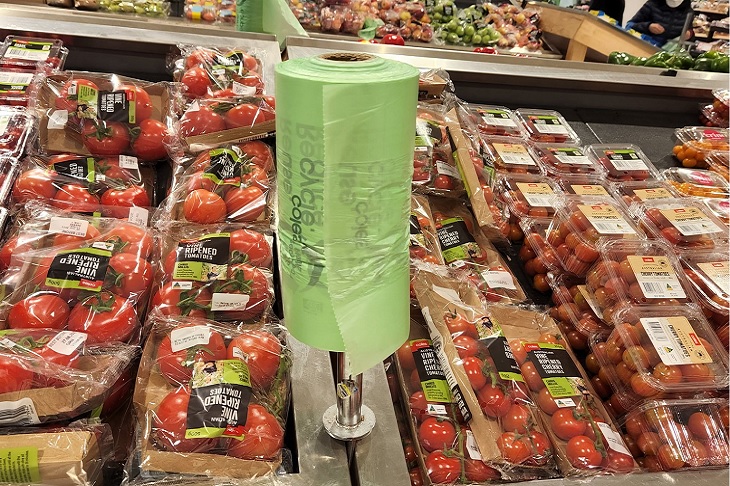
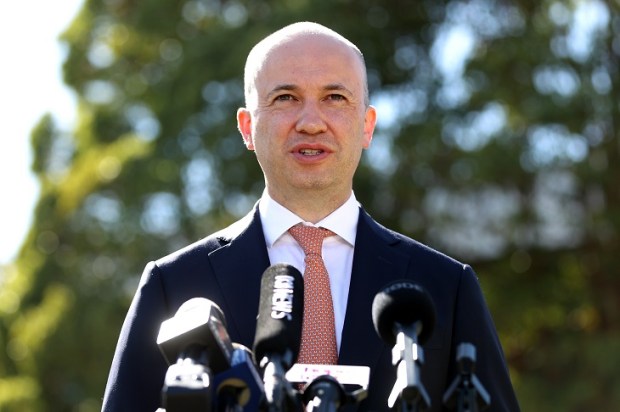
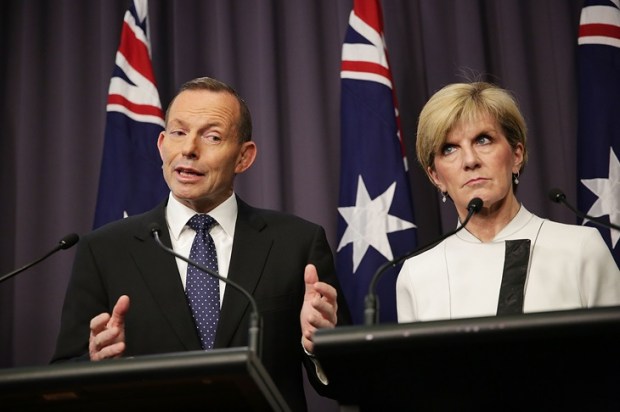



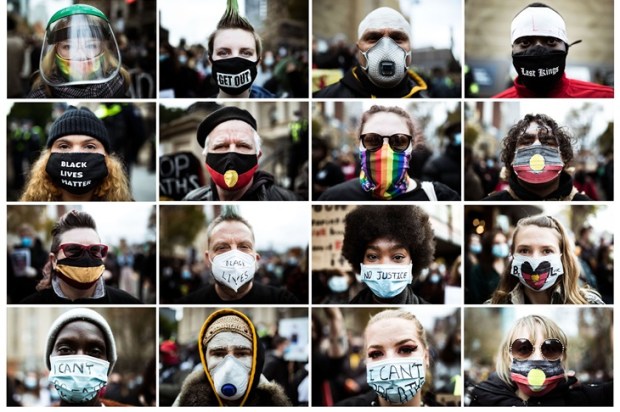


















Comments
Don't miss out
Join the conversation with other Spectator Australia readers. Subscribe to leave a comment.
SUBSCRIBEAlready a subscriber? Log in